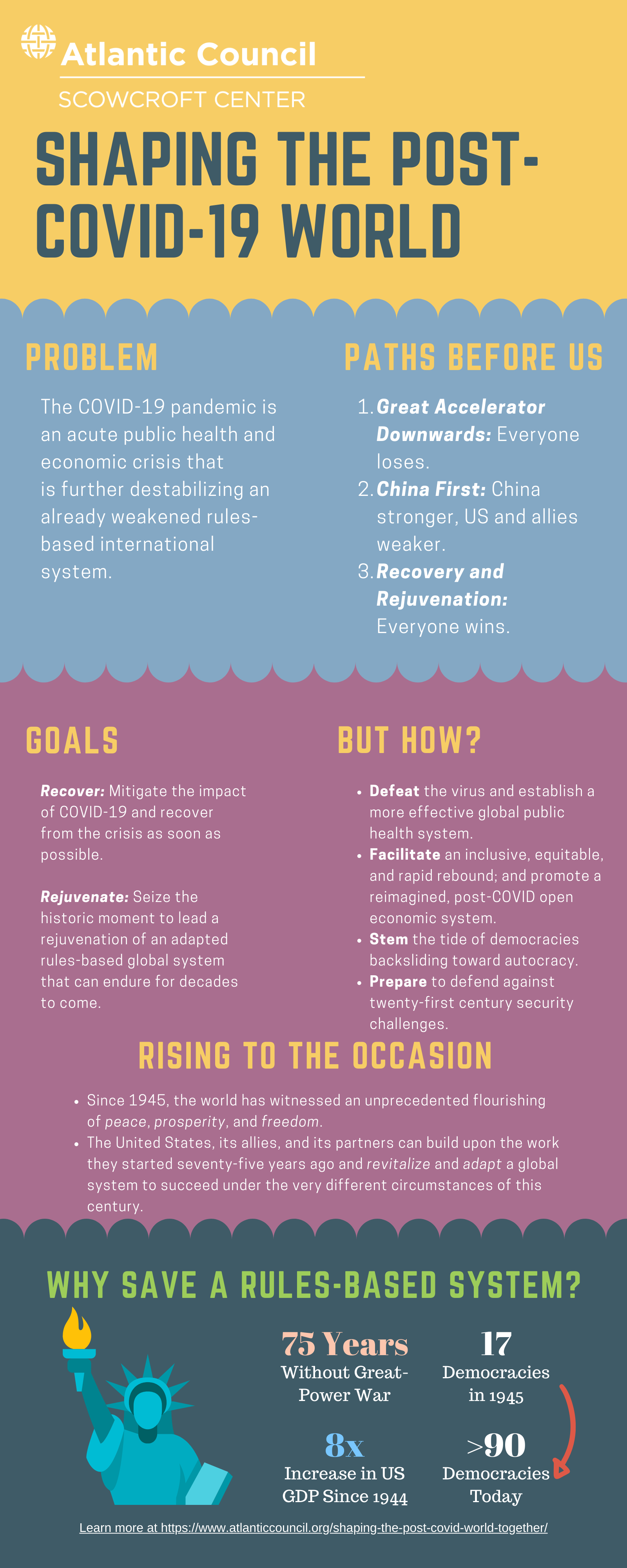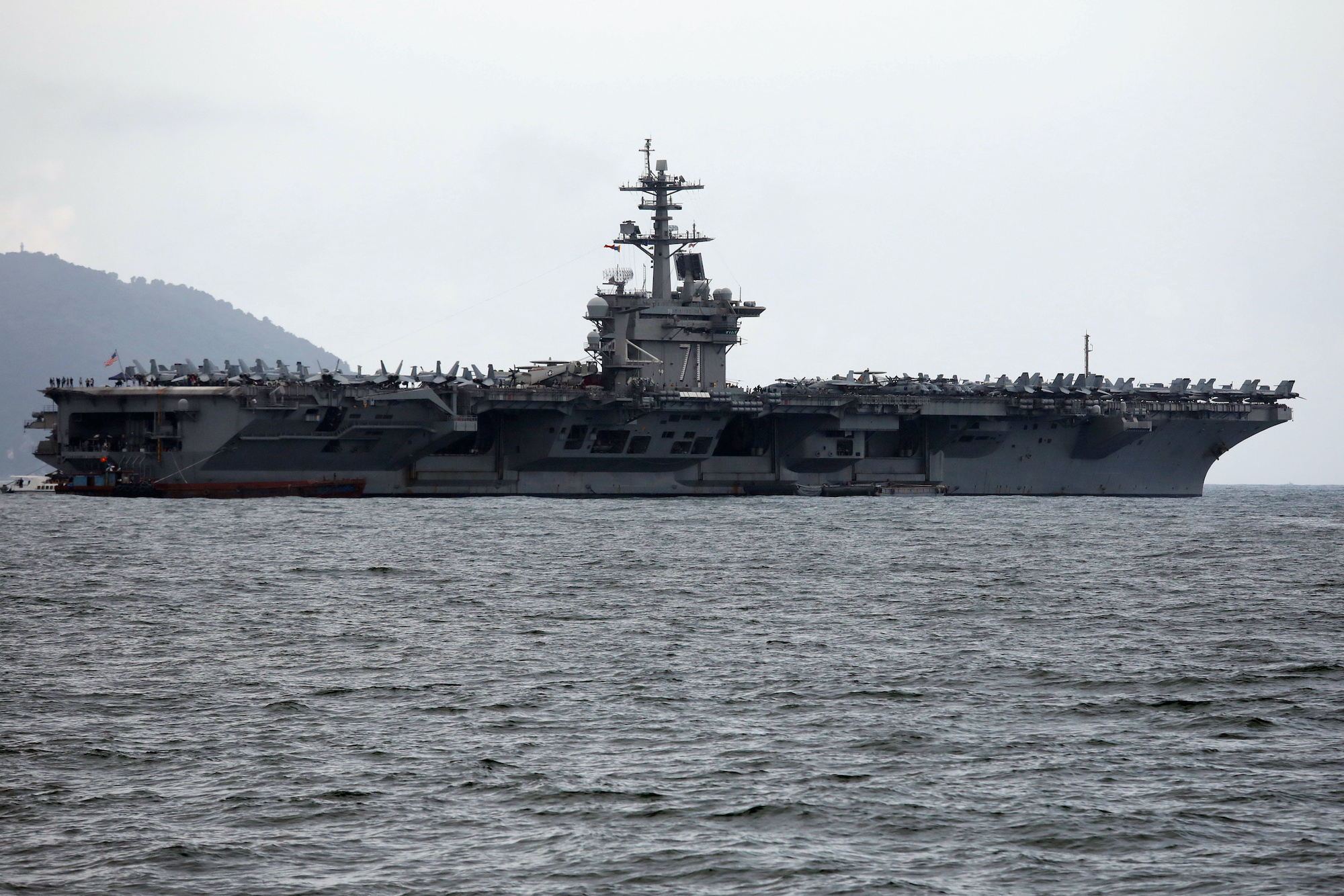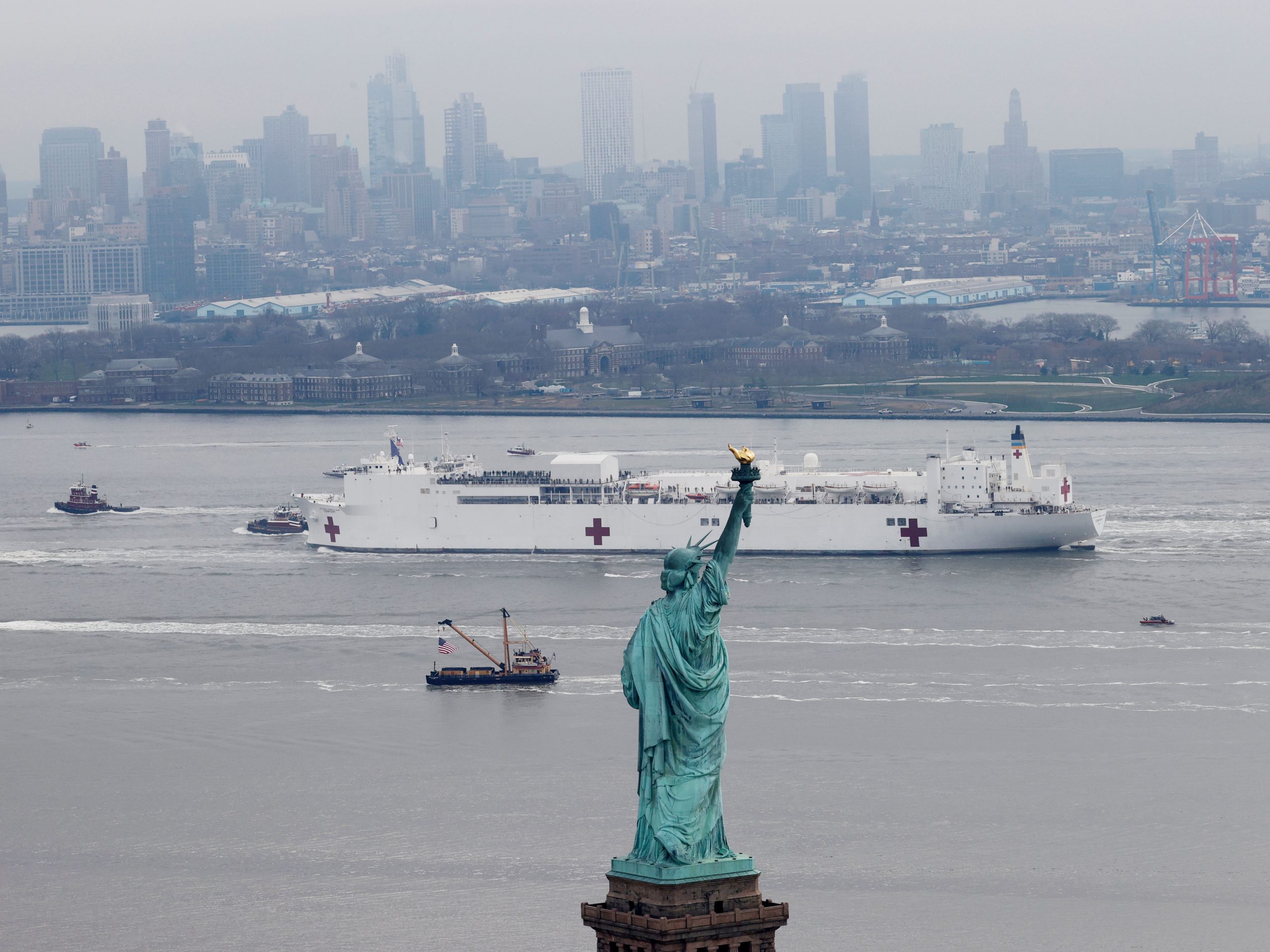A global strategy for shaping the post-COVID-19 world
By Jeffrey Cimmino, Rebecca Katz, Matthew Kroenig, Josh Lipsky, Barry Pavel
The COVID-19 pandemic is an acute public health and economic crisis that is further destabilizing an already weakened rules-based international system. With cooperation, determination, and resolve, however, the United States and its allies can recover from the crisis and revitalize an adapted rules-based system to bring about decades of future freedom, peace, and prosperity.
Explore the main themes of the report using the guided menu below:
In Brief: Shaping the Post-COVID-19 World

Related Experts: Jeffrey Cimmino, Matthew Kroenig, Josh Lipsky, and Barry Pavel

